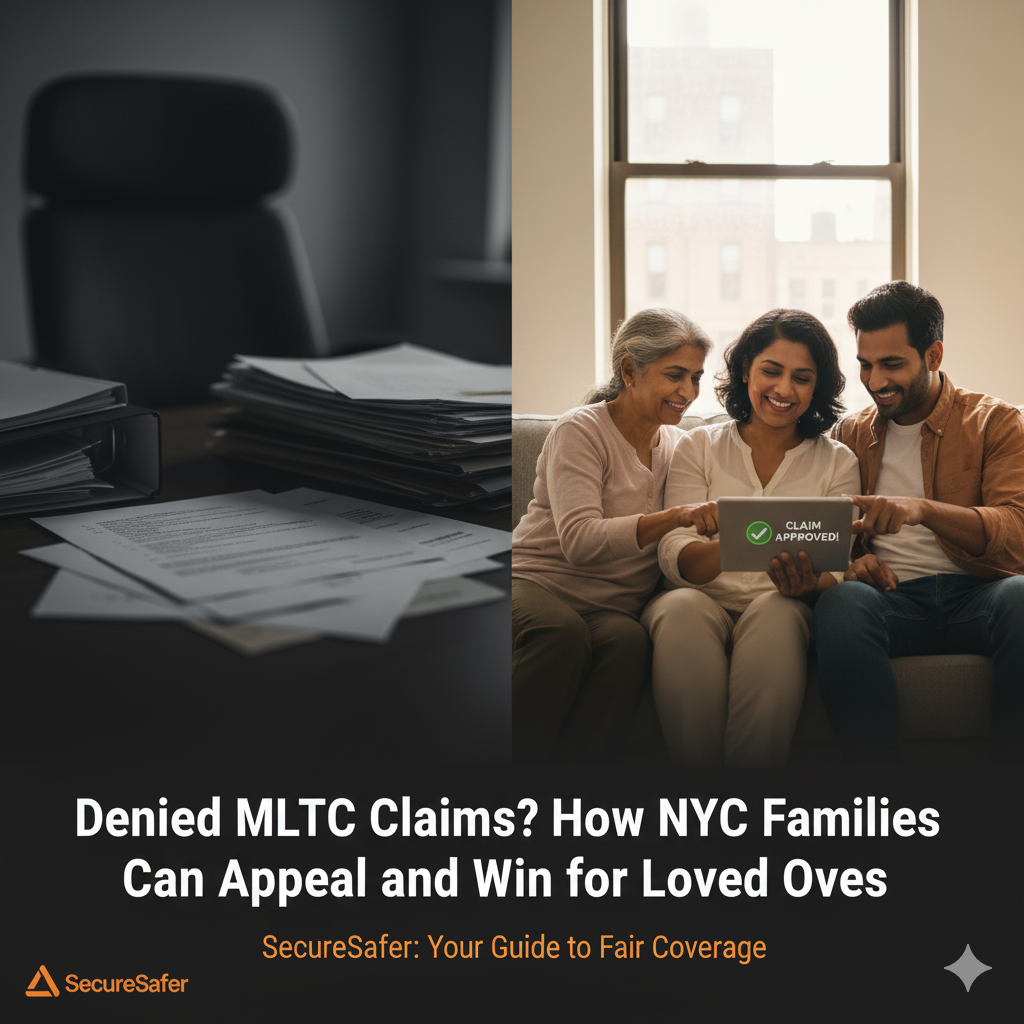Table of Content
1.Introduction: The Denial That Shattered Trust
2.Why Denials Happen
3.The Emotional Cost of “No”
4.A Story From Queens
5.Steps Families Can Take
6.Steps Families Can Take
Introduction: The Denial That Shattered Trust
When Mrs. Begum’s daughter opened the letter, she felt her stomach drop. Her mother’s Managed Long-Term Care (MLTC) hours had been cut, despite a doctor’s recommendation for more help. The letter said denied. After weeks of filling out forms and meeting evaluators, this single word left the family panicked.
ADVERTISEMENT
Across New York City, countless families live this story. They do everything right, only to be told their loved one doesn’t qualify for the care they need. But here’s the truth: a denial isn’t the end. With the right steps, families can appeal — and win.
Why Denials Happen
MLTC was designed to help seniors and people with disabilities stay at home rather than move into nursing facilities. But the system is complex. Denials often come from assessments that don’t capture the full picture, paperwork errors, or tight budgets that push agencies to limit hours.
Families are left feeling powerless. They know their parent can’t bathe or cook alone, but the form says otherwise. That gap between lived reality and official paperwork is where appeals begin.
The Emotional Cost of “No”
A denial doesn’t just cut services — it cuts hope. Families who rely on aides suddenly wonder how they’ll manage. Children take unpaid time off work. Elderly spouses push themselves beyond safe limits. Stress spreads across households already stretched by New York’s high costs.
The hardest part? Feeling unheard. Families often say, “We told them everything, but it’s like they didn’t listen.” Appeals are not just about paperwork — they’re about reclaiming dignity.
A Story From Queens
Shafique’s father, a stroke survivor, was denied additional MLTC hours. The letter claimed he could manage “most daily tasks independently.” Shafique knew that wasn’t true. His father couldn’t safely stand without help.
Instead of giving up, the family appealed. They gathered medical notes, asked his neurologist to write a statement, and requested a fair hearing. It took weeks, but eventually, the decision was overturned. His father’s hours were restored.
Shafique later said, “We thought the system was against us. But once we fought back, we realized we had rights too.”
Steps Families Can Take
The key to winning an appeal is persistence and detail. Families who succeed usually do three things:
First, they collect every piece of medical evidence. Doctor notes, hospital records, and therapist evaluations paint a fuller picture than the state’s brief assessments.
Second, they request a fair hearing quickly. Deadlines matter. In New York, families often have as little as 60 days to respond.
ADVERTISEMENT
Finally, they tell the story in human terms. At hearings, families who describe how a parent fell, burned themselves cooking, or wandered unsafely are often heard more clearly than forms alone could convey.
The state provides guidance on appeals at health.ny.gov, and resources exist for families who feel overwhelmed.
How SecureSafer Stands Beside Families
At SecureSafer, we’ve sat at kitchen tables in Brooklyn, Queens, and the Bronx, listening to families share their frustrations. We don’t just explain rules — we help gather evidence, write letters, and prepare families for hearings. We speak in Bangla, Spanish, and English so nothing is lost in translation. And we remind families that denials aren’t failures. They’re just the first step in a longer process that can end in success. Because every parent, grandparent, and loved one deserves the care they truly need — not the minimum someone else decides on paper.
If your MLTC claim has been denied, don’t give up. Denials can be challenged — and won.
📞 Visit SecureSafer.com to learn how we can help your family appeal and protect the care your loved one deserves.
Compliance Note
This article is for educational purposes only. SecureSafer does not guarantee Medicaid or MLTC approvals, appeal outcomes, or coverage results. For official guidance, visit Medicare.gov, DFS, or NY State Health.
| Need Help Now? Don’t Wait. ✅ Call our SecureSafer team directly at SecureSafer.com or call (646) 444-2020 ✅ Request a policy review or switch evaluation today. |
ADVERTISEMENT

